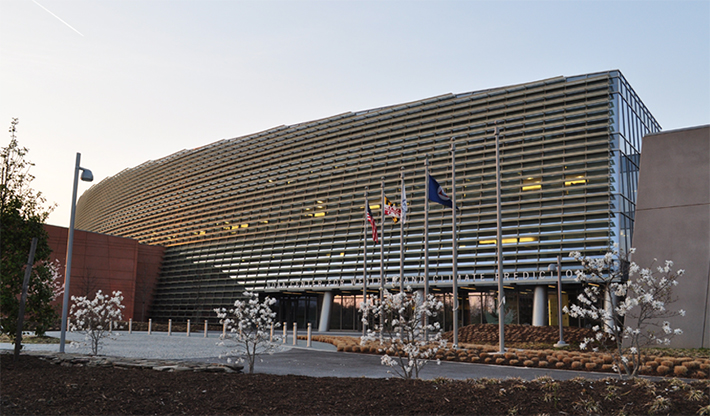- STAR Home
- > News &
Events
- > NOAA Names the University of Maryland to Host Cooperative Institute for Satellite Earth System Studies (CISESS)
NOAA Names the University of Maryland to Host Cooperative Institute for Satellite Earth System Studies (CISESS)
 
31 May 2019 - The National Oceanic and Atmospheric Administration
announced on May 24, 2019 that it has selected the University of Maryland in College
Park, Maryland, to host NOAA's cooperative institute focused on the use satellite data,
in situ observations, and Earth System models to enhance our understanding of how
the atmosphere-ocean-land-biosphere components of Earth interact with each other
and human activities as a coupled system.
The Cooperative Institute for Satellite Earth System Studies (CISESS) is a
national consortium of academic and nonprofit institutions, with leadership from
the University of Maryland College Park (UMD) and North Carolina State University (NCSU).
CISESS will contribute to NOAA mission-directed research leading to greater
observation, understanding, and prediction of the global Earth System. CISESS will
provide the capabilities and expertise to improve systems for data access, quality,
management, processing, analysis, assimilation, modeling, dissemination,
visualization and stewardship. CISESS will help NOAA apply advances in high
performance computing, artificial intelligence, virtual reality, and social
sciences related to the physical science efforts, as well as continue topics
such as satellite calibration, algorithm development and maintaining
long-term data records from satellites and in-situ measurements.
The selection comes with an award of up to $175 million over the course
of the five-year award, with the potential for renewal for another five years
based on successful performance. NOAA made the selection after an open,
competitive evaluation. The new cooperative institute continues the heritage
of the Cooperative Institute for Climate Studies (CICS) that was first created
as a NOAA cooperative institute in 1984, renamed to the Cooperative Institute
for Climate and Satellites (CICS) in 2009.
|

